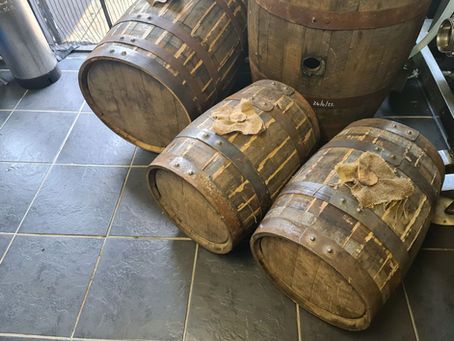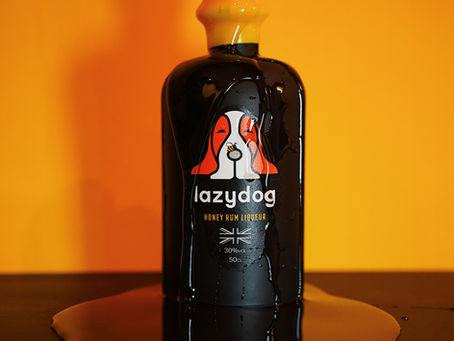Crafted with Heart: The Essence of English Rum This is a blog I have intended to write for a fair while, but to be completely truthful I have never gotten around to it – despite it literally being about our business coming to be and the landscape in which we operate, and the overview of the next 5 minutes of your time is quite simply this – Should it be called and English Rum or British Rum if the base spirit is made overseas? In recent years, as we at Lazydog are testament to, there has been a notable surge in the number of distilleries across the United Kingdom choosing to embark on the ambitious journey of crafting rum from scratch. This trend marks a departure from the traditional practice of importing and bottling spirits from overseas, instead placing an emphasis on homegrown production. In an industry where the UK quite rightly still holds great overseas esteem - Distilleries are embracing the art of fermentation, distillation, and aging, right here on British soil. This movement reflects not only a growing interest in spirits with a distinct sense of place but also a desire to contribute to the narrative of British craftsmanship to give consumers ral alternatives to the mass manufactured brands that adorn the shelves of pubs and off-licences across the country. As a result, the landscape of UK rum production is undergoing a transformation, ushering in a new era where authenticity, innovation, and a deep connection to local resources are at the forefront of the spirit-making process. This wave of distilleries handcrafting rum from the ground up in the UK can be viewed as a harmonic resonance with the gin renaissance that transpired in recent years. The increase in popularity of Gin saw an extraordinary upsurge in independent gin producers emerging onto the scene, each bringing their distinct botanical blends and stories to the table. This movement symbolised a shift in consumer preferences, where people sought more than just a drink; they yearned for an experience, a connection to the creators and the land. The proliferation of gin distilleries demonstrated the UK's capacity to create artisanal spirits that resonated with a public eager for authenticity and diversity. Importantly, the gin renaissance fostered a newfound openness among consumers to explore new and independent spirits. As gin producers showcased their ability to infuse creativity into tradition, consumers began to appreciate the nuanced flavours, craftsmanship, and stories woven into each bottle. This evolving mindset paved the way for the current rise of English rum distilleries. Just as the public enthusiastically embraced the new gin offerings, they're now willing to venture into the world of English rums, intrigued by the promise of unique taste profiles and locally rooted narratives. In this context, the growing landscape of English rum production mirrors the gin renaissance's impact on the willingness of consumers to explore independent and small-batch spirits. It signifies a significant shift from the dominance of mass-produced, generic brands to a thirst for genuine connections and authentic experiences. As more distilleries take up the mantle of crafting English rum from scratch, they're not only satisfying the evolving palates of the public but also building upon a legacy of British craftsmanship that's gaining new appreciation in the modern era. Just as the gin movement redefined the spirits industry, the rise of English rum distilleries is contributing to a broader movement of rediscovery, reconnection, and a celebration of the rich tapestry of flavours that Britain has to offer. Honouring the Essence of English Rum: Beyond Borders, Beyond Labels The issue with the seemingly relentless increase in popularity of Rum in the UK is that it invites those into the midst who would look to make a quick quid and take the easy route into the market by importing overseas spirits and disingenuously market it as an English Rum or a British Rum. That’s not to say that these spirits are inferior or that there is no place in the market for them, on the contrary, some of the base spirits are from some of the best rum distilleries in the world - my gripe arises with the mislabelling of these rums as English or British, when the real artistry of the original fermentation and distillation was somebody else’s on another continent. Unfortunately, a disconcerting trend has emerged in recent times - the practice of importing rum from overseas into the UK, only to bottle it here and label it as British. It's a practice that not only dilutes the authenticity of English Rum but also raises a poignant question about the integrity of the craft. Is it truly British if its essence and alchemy doesn't unfold in our distilleries? When it comes to defining "English Rum," the essence goes beyond just its geographical origin, it should also encapsulate a journey that starts with raw ingredients and culminates in the liquid poetry that fills our glasses. It should tell a story of dedication, and trial and error to achieve what the distiller has eventually felt comfortable releasing to the world. Unlike its counterparts that traverse continents, English Rum stays grounded, flourishing almost exclusively within the United Kingdom. Central to the identity of English Rum should always be a resolute commitment to authenticity. It's a commitment that embodies the very spirit of distilleries like ours at and the other select few making rum in the UK, where the journey from raw material to refined elixir unfolds entirely on British terrain. In an era where mass production and outsourcing prevail, we should strive that the narrative of English Rum should be, and remain, one of genuine craftsmanship. It's more than a mere beverage; it's a testament to the dedication and artistry that goes into its creation. It's about the pride that comes from crafting a spirit that's wholly, unmistakably British. I believe there should be a call for the spirits industry to hold the banner of authenticity high, to take a stand against practices that undermine the essence of English and British Rum. Transparency should reign supreme, and consumers should be empowered with knowledge. Let the labels tell the whole story, let them reveal where the journey truly began.



